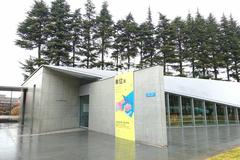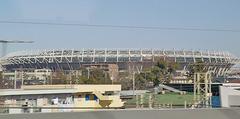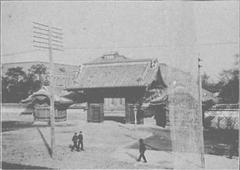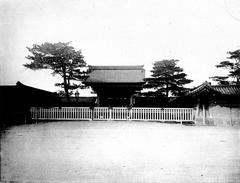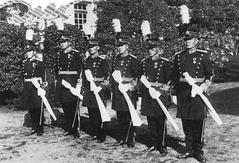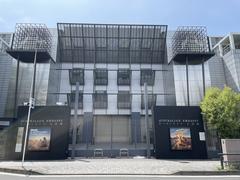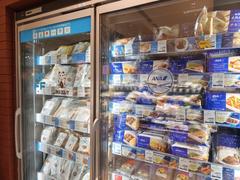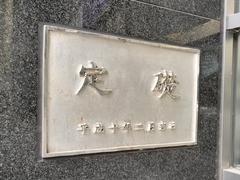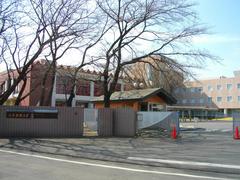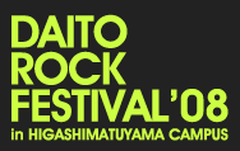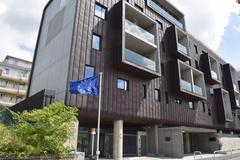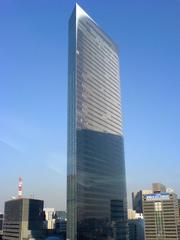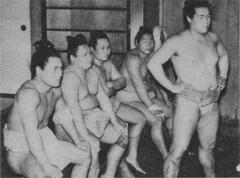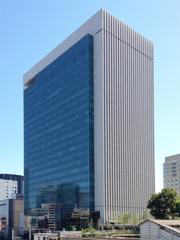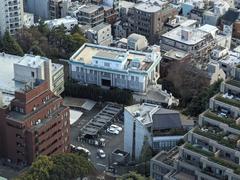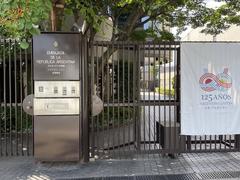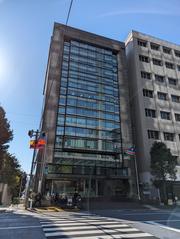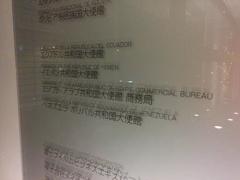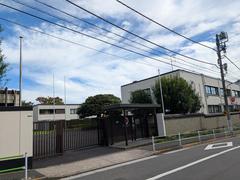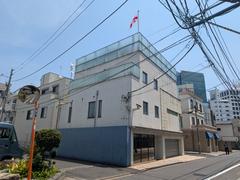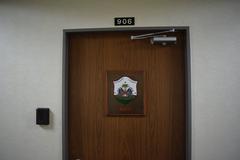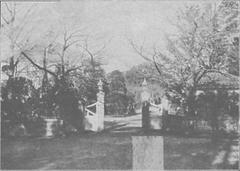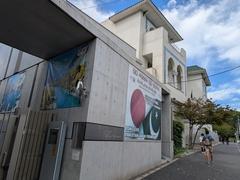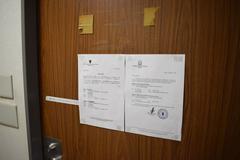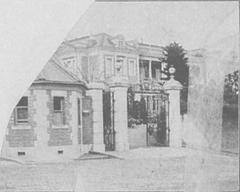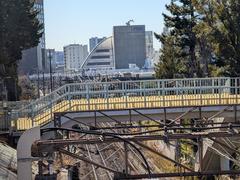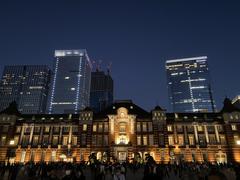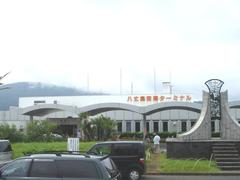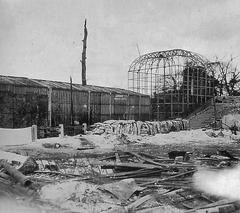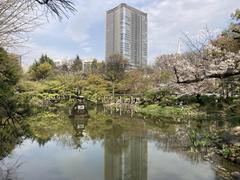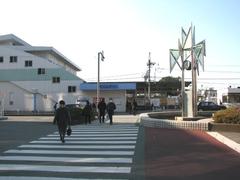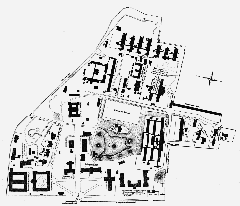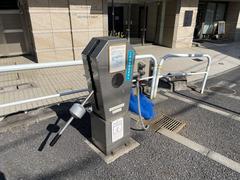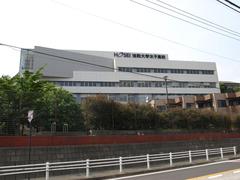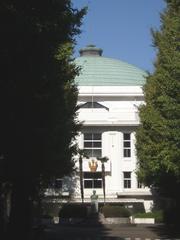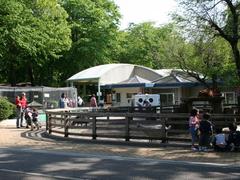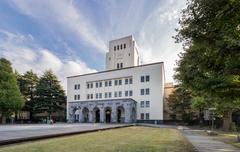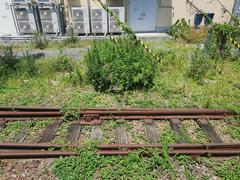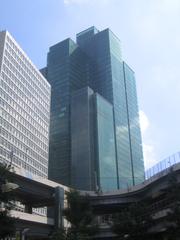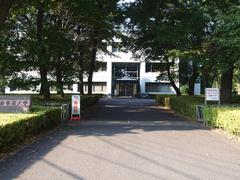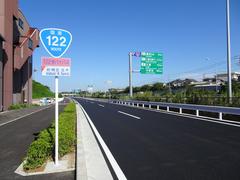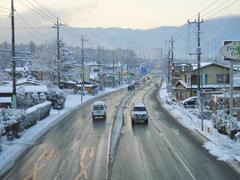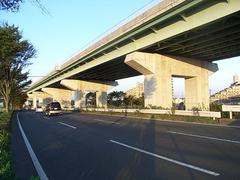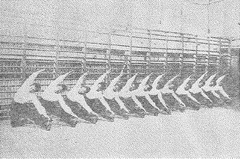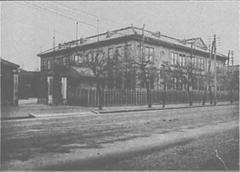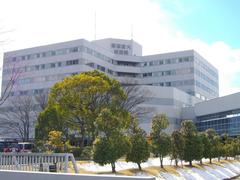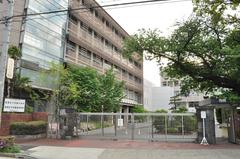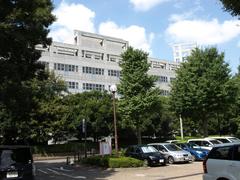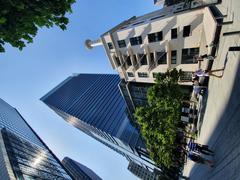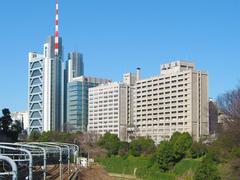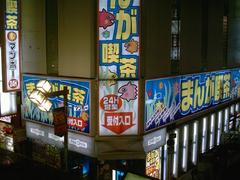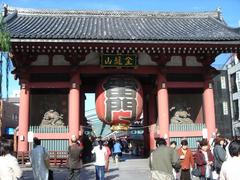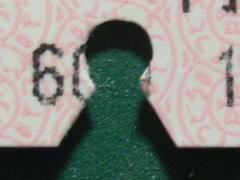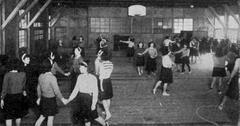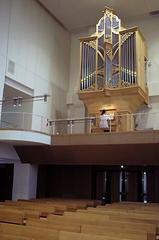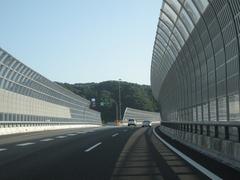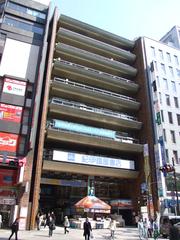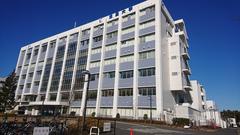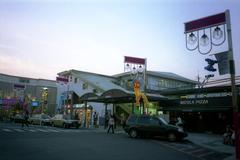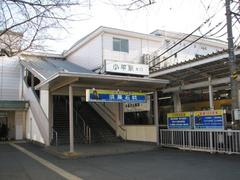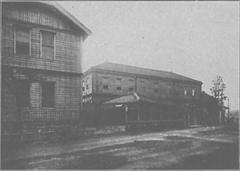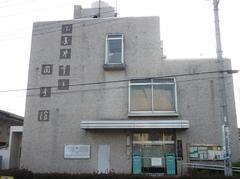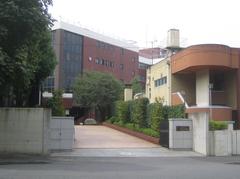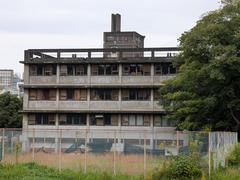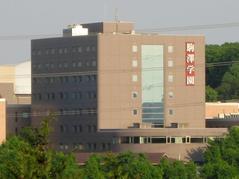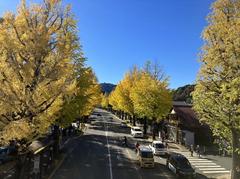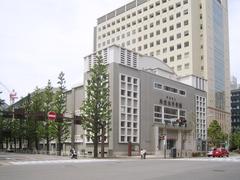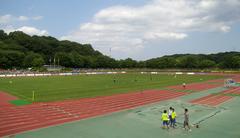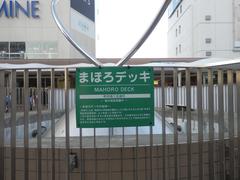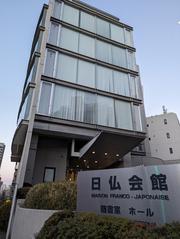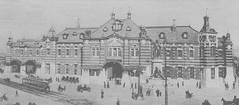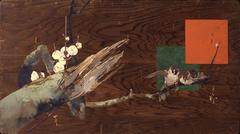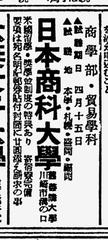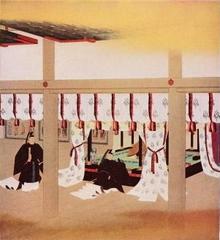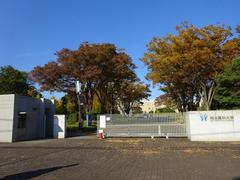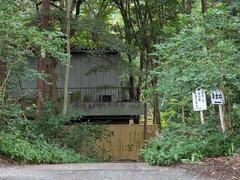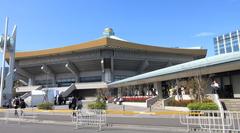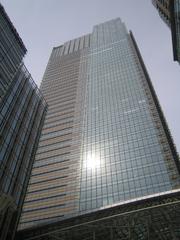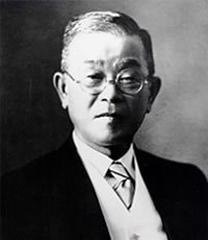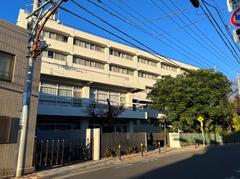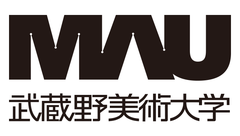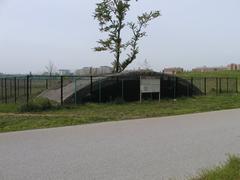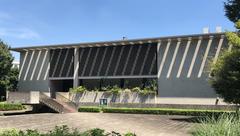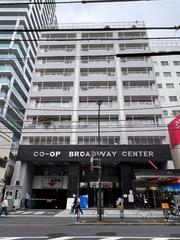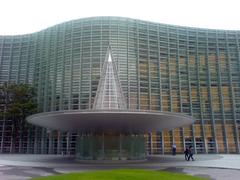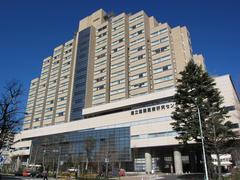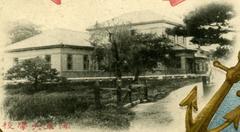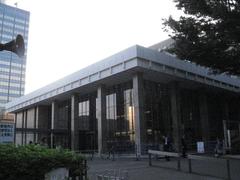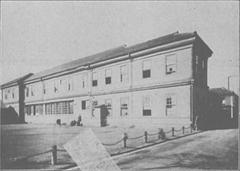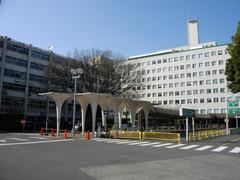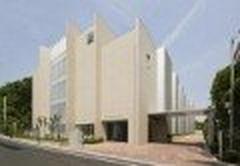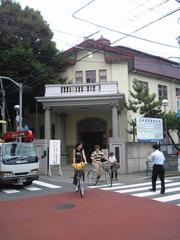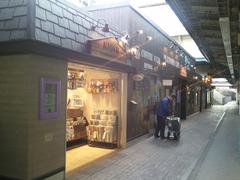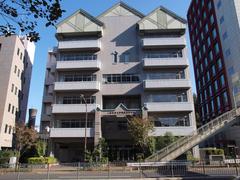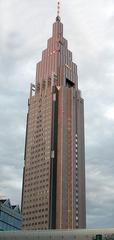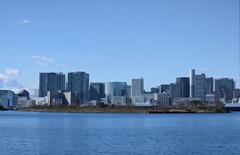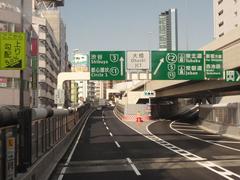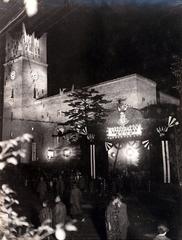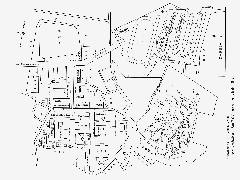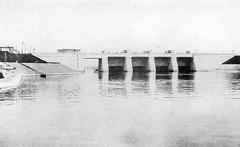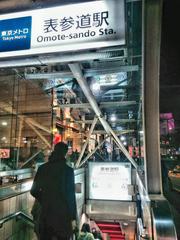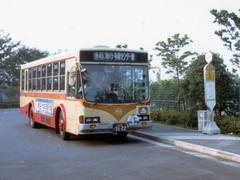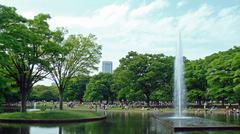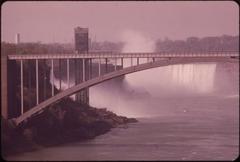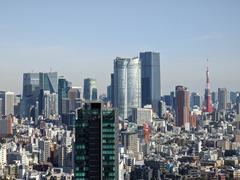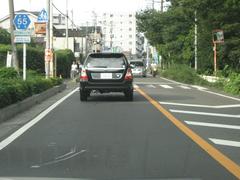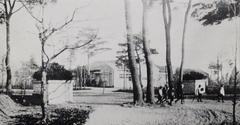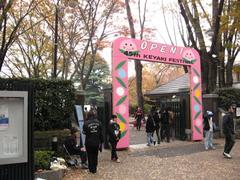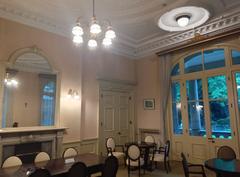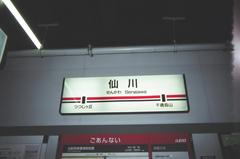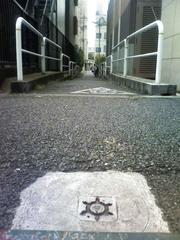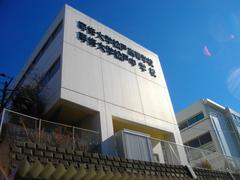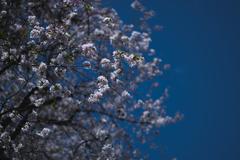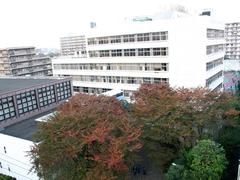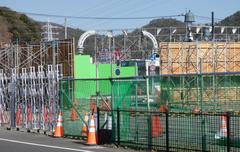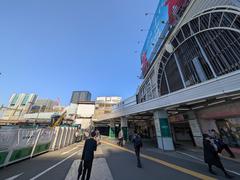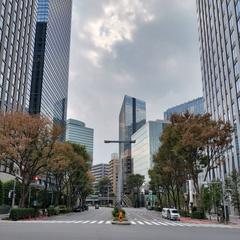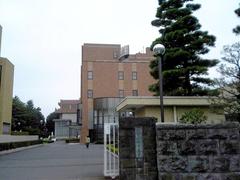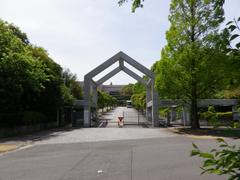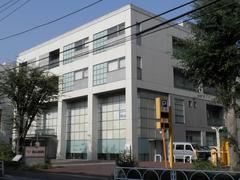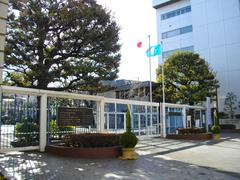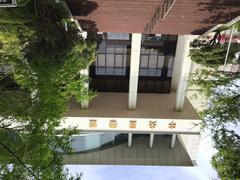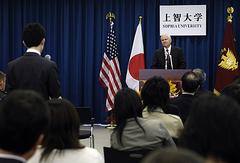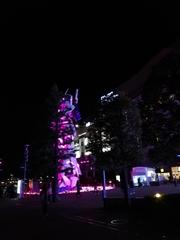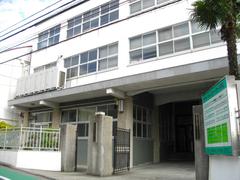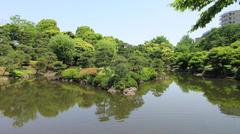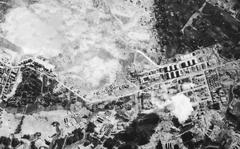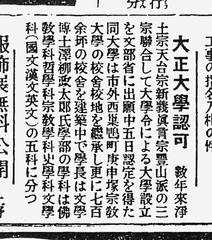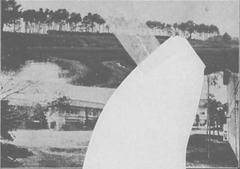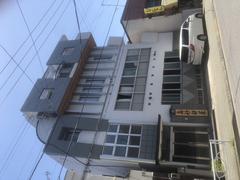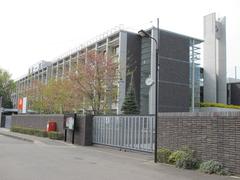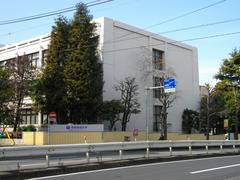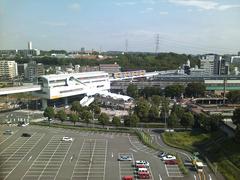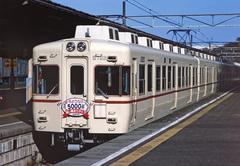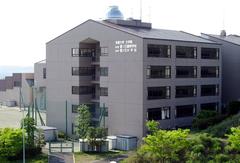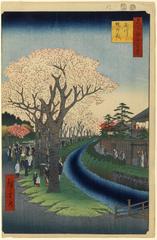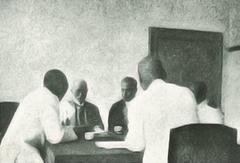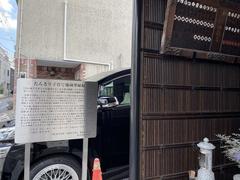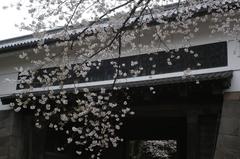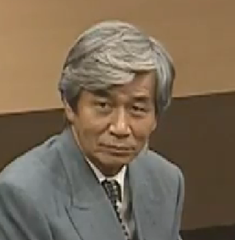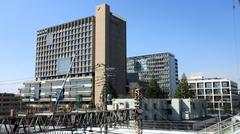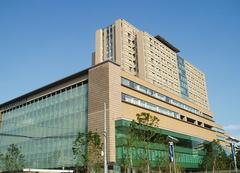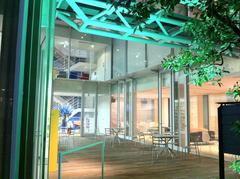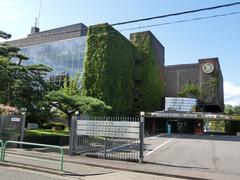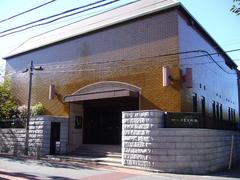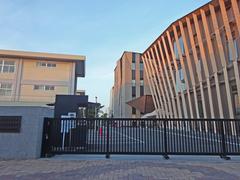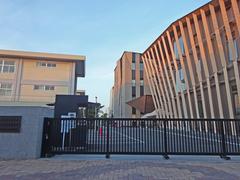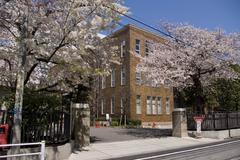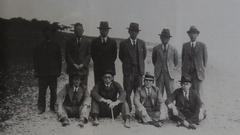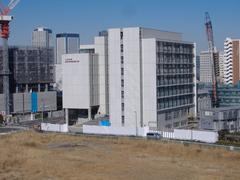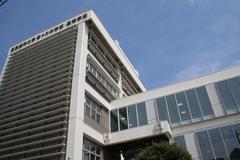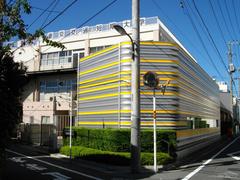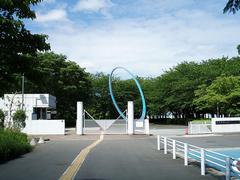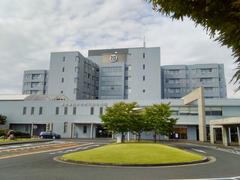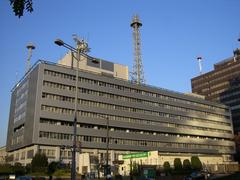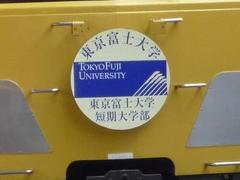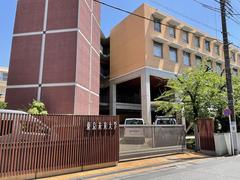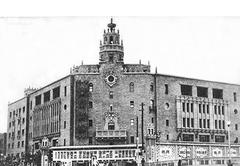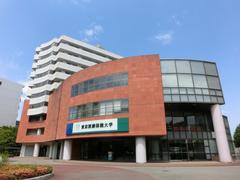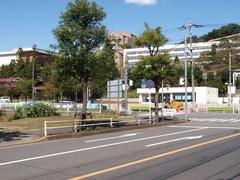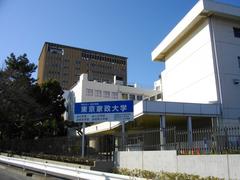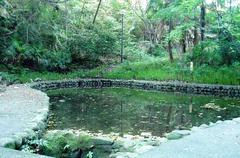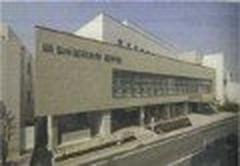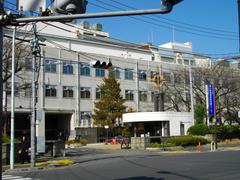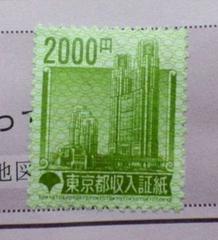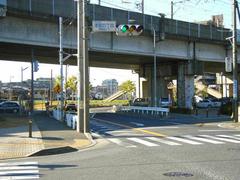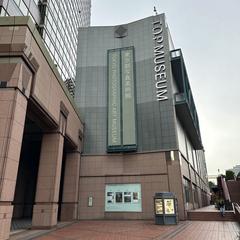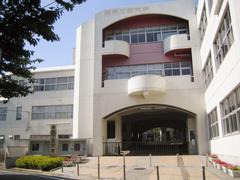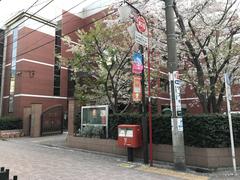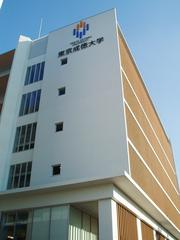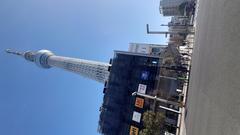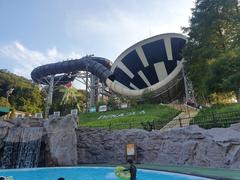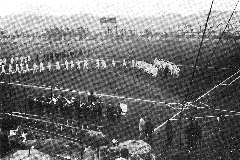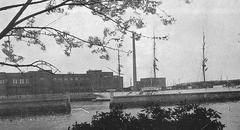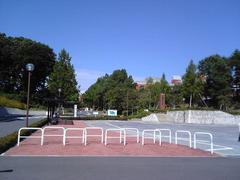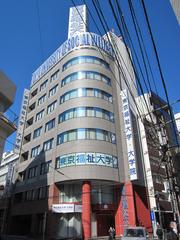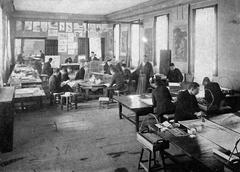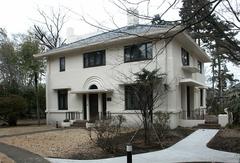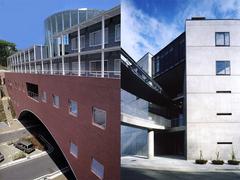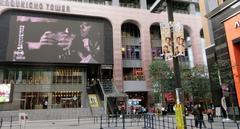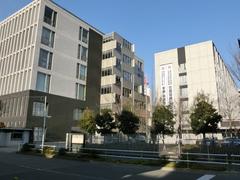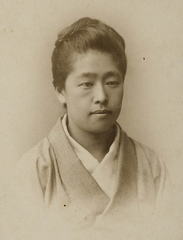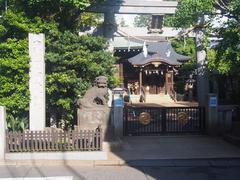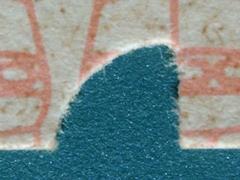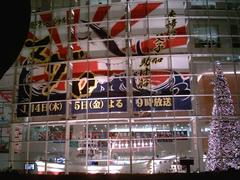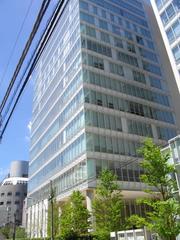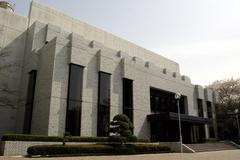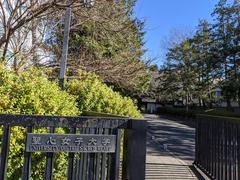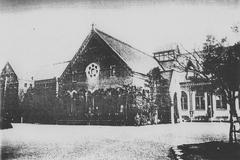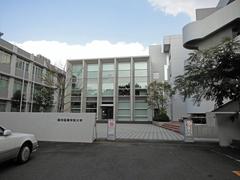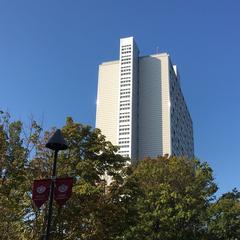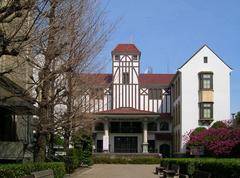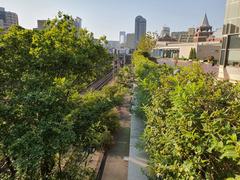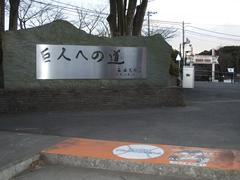Embassy of Morocco in Tokyo: Visiting Hours, Tickets, and Travel Guide
Date: 15/06/2025
Introduction
The Embassy of Morocco in Tokyo stands as a pivotal institution strengthening the diplomatic, economic, and cultural relationship between Morocco and Japan. Since its establishment in 1965, the embassy has facilitated a wide array of services for both Moroccan nationals and Japanese citizens—ranging from visa processing to cultural exchange initiatives. Strategically located in Tokyo’s Minato ward, the embassy is easily accessible and serves as a gateway for travelers, students, businesses, and those wishing to experience Moroccan culture in Japan.
This comprehensive guide details visiting hours, consular services, historical background, cultural significance, transportation options, etiquette, nearby attractions, and frequently asked questions—ensuring a smooth and informed visit to the Embassy of Morocco in Tokyo. For the most current and authoritative information, always consult the embassy’s official website (https://jp.diplomatie.ma/en/bilateral-relations), as well as affiliated resources (https://www.ma.emb-japan.go.jp/).
Table of Contents
- Introduction
- Embassy Location and Contact Details
- Visiting Hours and Entry Procedures
- Consular Services and Appointments
- Historical and Diplomatic Significance
- Economic, Cultural, and Educational Engagement
- Directions, Accessibility, and Nearby Attractions
- Cultural Etiquette and Visitor Tips
- Frequently Asked Questions (FAQ)
- Conclusion
- Sources and Official Links
Embassy Location and Contact Details
Embassy Address:
5-4-30 Minami-Aoyama, Minato-ku, Tokyo 107-0062, Japan
Coordinates: 35.6652072, 139.7185838
Phone: +81 3 5485 7171
Fax: +81 3 5485 7173
Email: [email protected]
Official Website: www.morocco-emba.jp
The embassy is nestled in the prestigious Minami-Aoyama district, an area known for its embassies, luxury boutiques, and cultural institutions. Its proximity to Roppongi, Shibuya, and Omotesando makes it a convenient stop for both official business and cultural exploration.
Visiting Hours and Entry Procedures
Regular Visiting Hours:
Monday to Friday, 10:00 AM – 3:30 PM
Closed on weekends and on Japanese and Moroccan public holidays.
Entry & Appointments:
- Appointments are strongly recommended for all consular services (visa applications, passport renewals, document legalization).
- Walk-ins may not be accommodated; contact the embassy in advance to confirm availability.
- No tickets are required for entry; however, special events may require advance registration.
Security:
- All visitors must present valid photo identification.
- Security screening, including bag checks, is standard practice.
- Photography inside the embassy is strictly prohibited.
Consular Services and Appointments
The embassy provides a comprehensive suite of consular and diplomatic services:
- Visa Processing: For non-Japanese nationals and long-term stays. Japanese citizens do not require a tourist visa for short visits to Morocco.
- Passport Services: Renewal and issuance for Moroccan nationals.
- Legal and Notarial Services: Document legalization, certifications, and assistance.
- Emergency Support: For Moroccan citizens residing or traveling in Japan.
- Cultural and Economic Information: Guidance for Japanese citizens and residents interested in travel, study, or investment in Morocco.
Appointment Booking:
Contact the embassy by phone or email, or consult the official website for online appointment instructions.
Historical and Diplomatic Significance
Establishment of Bilateral Relations
Formal diplomatic relations between Morocco and Japan began in 1956, following Morocco’s independence (arabu.jp). Japan opened its embassy in Rabat in 1961, and Morocco inaugurated its Tokyo embassy in 1965 (jp.diplomatie.ma). These milestones laid the foundation for a robust partnership.
Key Milestones
- 1960 Treaty on Trade and Commerce and 1985 Fisheries Agreement have facilitated economic and maritime cooperation.
- King Mohammed VI’s state visit to Japan in 2005 and reciprocal visits by Japanese dignitaries have further strengthened ties (classified.japantimes.com).
Recent Agreements
- Expansion into technology, education, and investment, including the 2022 Convention for the Elimination of Double Taxation and a new Investment Protection Agreement (moroccoworldnews.com).
Economic, Cultural, and Educational Engagement
The embassy actively promotes:
- Trade and Investment: Collaborations with organizations like JETRO through trade missions and forums (arabu.jp).
- Cultural Diplomacy: Events highlighting Moroccan cuisine, art, and heritage in partnership with local associations (classified.japantimes.com).
- Educational Exchange: Scholarships and university partnerships foster people-to-people connections.
Directions, Accessibility, and Nearby Attractions
Getting There
- By Metro:
- Omotesando Station (Ginza, Chiyoda, and Hanzomon lines): ~8-minute walk
- Nogizaka Station (Chiyoda line): ~10-minute walk
- By Taxi/Car:
Taxis are readily available, but parking is limited.
Accessibility
- The embassy is equipped with accessible entrances and ramps.
- Contact the embassy ahead of your visit for specific accessibility needs.
Nearby Attractions
- Omotesando Avenue: Luxury shopping and modern architecture.
- Nezu Museum: East Asian art and Japanese gardens.
- Roppongi Hills and Mori Art Museum: Contemporary art and city views.
- Meiji Jingu Shrine: Iconic Shinto shrine set in a tranquil forest.
- Yoyogi Park: Expansive green space, ideal for walking and relaxation.
Cultural Etiquette and Visitor Tips
Japanese Customs
- Punctuality: Arrive on time.
- Dress Code: Business or smart casual attire is expected.
- Politeness: Greet staff with a bow or polite nod; wait to be addressed.
Moroccan Customs
- Greetings: Handshakes are common; place your right hand over your heart as a sign of respect.
- Hospitality: Accept refreshments if offered.
- Right Hand Use: Use your right hand for greetings and exchanges.
- Modesty: Dress modestly, especially during cultural events.
- Religious Sensitivity: Be mindful during Ramadan or religious occasions.
General Tips
- Arrive 10–15 minutes prior to your appointment for security checks.
- Check the embassy website for event announcements and service updates.
- ATMs, cafes, and hotels are readily available in the surrounding area.
Frequently Asked Questions (FAQ)
Q: What are the Embassy of Morocco Tokyo visiting hours?
A: Monday to Friday, 10:00 AM to 3:30 PM, excluding public holidays.
Q: Do I need an appointment or tickets to visit the embassy?
A: No tickets are required, but appointments are strongly advised.
Q: Is a visa required for Japanese citizens to travel to Morocco?
A: Not for short tourist stays; check with the embassy for other visa types.
Q: How do I get to the embassy?
A: The embassy is near Omotesando and Nogizaka metro stations.
Q: Are there guided tours or special events at the embassy?
A: The embassy occasionally hosts cultural events. Check the official website for updates.
Conclusion
The Embassy of Morocco in Tokyo is more than a diplomatic mission—it is a vibrant hub for consular services, cultural exchange, and economic collaboration. Its accessible location, comprehensive services, and commitment to fostering Morocco-Japan relations ensure that every visitor—be they a traveler, expatriate, or culture enthusiast—receives essential support and a warm welcome.
To make the most of your visit:
- Schedule appointments in advance.
- Adhere to cultural and security protocols.
- Explore the dynamic neighborhoods surrounding the embassy.
For the latest information, always consult the embassy’s official website and affiliated resources.
Sources and Official Links
- Embassy of Morocco in Tokyo: Visiting Hours, Services, and Diplomatic Significance, 2025, (https://jp.diplomatie.ma/en/bilateral-relations)
- Embassy of Morocco in Tokyo: Visiting Hours, Location, and Services Guide, 2025, (https://www.ma.emb-japan.go.jp/)
- Visiting the Moroccan Embassy in Tokyo: Hours, Services, and Nearby Attractions, 2025, (http://www.morocco-emba.jp)
For visuals: Include images of the embassy building, a location map, and photos from cultural events (with appropriate permissions and alt text).
